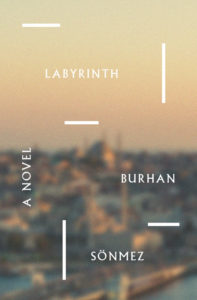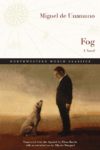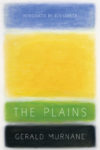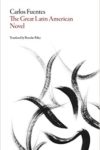 [Other Press; 2019]
[Other Press; 2019]
Trans. by Ümit Hussein
It is an odd quirk of literature that the mystery novel, a genre most widely associated with cheap twists and lurid paperbacks, is inherently a work of existentialism. The book, at its core, is a reckoning with absence: someone has vanished or been murdered; something has been stolen and must be found; a crime has been committed and the perpetrator must be identified. Often, the detective themselves has also faced some great personal loss: of love, of innocence. The questions they must now solve in their investigation are the same that rise in the wake of grief: what happened? why? what does it mean? The best mysteries understand that such questions frequently lack answers. In Chinatown, Jake Gittes cracks the case but finds himself unable to do anything about the real culprit, the grinding corruption and moral decay of Los Angeles. In The Black Dahlia, the characters’ inability to solve the murder, to answer that most elemental of questions — what happened? — drives them to madness.
In Labyrinth, a slim, captivating new novel by the Turkish author Burhan Sönmez, a man with no memory wakes up in an Istanbul hospital. His friends tell him his name is Boratin Bey. They tell him he’s a blues singer, that he tried to kill himself by jumping off the Bosphorus Bridge. Here, the question is not what happened, but why: no one knows what made him, inexplicably, want to die. Some of his friends suggest his failed attempt was actually a success: that by losing his memory in the fall, Boratin has been released from the thing that drove him to suicide. But that same thing now haunts him in its unknowability — and its relationship to his identity. Who was Boratin Bey? Is he the same person now? How can he tell? “I’ve opened my eyes, I’m nobody,” Boratin thinks. “I have a body. That’s all.”
Released from the hospital, Boratin has no shortage of clues as he attempts to find a way back to himself. Friends and family ply him with anecdotes and take him out to sidewalk cafes they tell him he loves. His apartment is filled with unfamiliar possessions, “unfathomable” choices of a past self he can’t recall: “guitars, records, coffee tables, chandeliers.” He listens to his old band perform in a dark, smoky bar, the lyrics he once wrote now sung back to him by his bandmates. But his history remains a blank, these ostensible clues nothing more than a parade of objects, faces, names. “If they took me to a different house and said I was a fisherman or a woodcutter, I’d accept that too,” Boratin muses. How can he know? “People speak one language to the outside world and another language to themselves,” he thinks. Unmoored from any sense of himself, the mystery becomes not only who “Boratin” is, but the very construction of a “self.”
There is a taste of Borges in this premise: its hypnotic circularity, its diamond-sized glimpse of the infinite. And in other ways too, such as how the text slips back and forth from a close first-person “I” to a distant third-person as Boratin drifts into and away from himself. Yet Boratin’s investigation of his past also closely recalls Christopher Nolan’s ingenious film Memento, which shares a similar preoccupation with memory and its relationship to the truth. Nolan’s protagonist, Leonard, suffers from an inability to form new memories, a condition that hampers him as he attempts to solve the murder of his wife. Throughout the course of his investigation, Leonard can only retain important events by photographing them or tattooing them on his body immediately afterward. But as his memories fade, so too does his understanding of the clues he’s collected. Reason becomes muddied: without context, a photo of a license plate or a scrawled note with the words “don’t trust her” could mean anything, point in any direction. And indeed, the ability to track the significance of such clues is central to the story’s resolution; the film is a puzzle its viewers can solve, but not its protagonist.
Such quandaries are not lost on Boratin, even as he too struggles against them. “The past is like a train that grows distant and vanishes into the darkness,” he thinks. “If you don’t remember where you traveled on it and which stations you got off at, then you won’t know who you are either.” Why this city? Why these belongings? Why this life? The narrative of our lives accumulates like snow to form identity. But Boratin, to borrow a phrase from Vonnegut, has come unstuck in time. He can recognize statues of the Virgin Mary and Jesus, but can’t recall if they lived 200 or 2,000 years ago. He knows the names and faces of the Turkish sultans, but not if they are living or dead. Meanwhile, events of seeming significance or horror occur throughout the book: a childhood friend dies; a lover spends the night; a group of boys kill a cat in the street outside. But the events render no impact on Boratin: they are marooned outside of time, outside of narrative, and therefore outside of meaning.
There is a political edge here, too. Boratin, gazing into a mirror that reflects the skyline of Istanbul, ponders how the mirror “keeps the past to itself, reflecting only the present.” The bucolic image reflected out — of the mosques, the trees, the Golden Horn — shows nothing of the city’s tumultuous past: “the last Istanbul fire that wiped out entire neighborhoods of wooden buildings…the bodies of rebels that are hung from the trees in Gülhane every hundred years.” Perhaps, he thinks, it’s better to live this way: as a blank slate, with the past forgotten. And yet, the book asks, how can we know whether we are kind or cruel without remembering the past? How can we determine what kind of person we are, what kind of country, what we believe is worth fighting for? To forget our history is to forget ourselves, to forget that mirrors show only the surface of the story:
The world outside the mirror was one entity, and the world inside it another. When you put them together they become one. When you first looked at a mirror it was a lock, and when you looked at it again it was a key…people should live their lives knowing that one and two were both the same and different, and never forget that they had discovered that thanks to mirrors.
Labyrinth is the mystery novel at its most existential, in which the person who has disappeared is the protagonist himself, in which the mystery is the greatest of them all: consciousness, identity, the unknowability of self. The choices that have led us to this point, and how they define us. The book takes its title from a Borges quote: “It only takes two facing mirrors to construct a labyrinth.” And yet, Sönmez posits, you don’t even need two mirrors. All you need is the one, and someone to stare into it, wondering who is staring back.
Will Preston‘s writing has been nominated for the Pushcart Prize and has appeared in publications across North America, including The Common, The Smart Set, Smithsonian Folkways, The Masters Review, and Maisonneuve. He lives in Portland, Oregon, and holds an MFA from the University of British Columbia. Visit him at willprestonwriter.wordpress.
This post may contain affiliate links.







